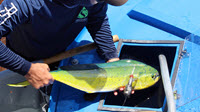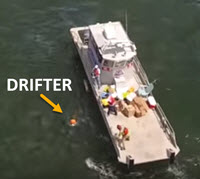Audio-Video
Audio and Video materials generated by GoMRI projects and consortia, including podcasts, short films, documentaries, and webinars.
The UTMSI released a series of four videos discussing research conducted by scientists with the Relationships of Effects of Cardiac Outcomes in fish for Validation of Ecological Risk (RECOVER) consortium. Part 1: Port Aransas and Oil RECOVER scientist Andrew Esbaugh explains why the area surrounding Corpus Christi and Port Aransas, TX, is ideal to study Read More
Biodegradation? Chromatography? While scientists toss these terms around with no problem, they can sound like a foreign language to others. The Deep-C consortium partnered with CPALMS, an online toolbox providing free instructional resources for educators, to create a series of videos related to Deepwater Horizon research and the Gulf Oil Observers (GOO) project. High School Read More
LBL Beacon Recovery Release Middle School Student Anja Diercks learns about acoustic release operation to recover a Long Base Line (LBL) acoustic beacon after a successful AUV dive. These LBL beacons are necessary in aiding the Inertial Navigation System of the AUV while on survey on the ocean floor, sometimes at depths of 1600 m Read More
Gary Finch Outdoors produced a series of videos highlighting various aspects of the Ecosystem Impacts of Oil and Gas Inputs to the Gulf (ECOGIG) program, its science, and the important partnerships necessary to make ECOGIG successful. Many of these videos were used by local PBS affiliates in Gulf coast states and were available through the Read More
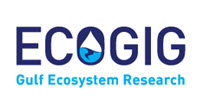
This series of videos entitled “What’s That?” to explain the oceanography techniques that researchers use to collect data in the Gulf of Mexico. Videos in the series may be viewed in any order and include the videos below: Lamont Oceanographic Biochemical Observer (LOBO) Nitrogen and Carbon Fixation Methods Phosphorus and Nitrogen Filtration Methods Sampling the Read More
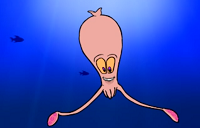
There are hundreds of deep-pelagic fish species in the Gulf of Mexico, and we are continuously learning about their diversity and behaviors. These short videos, hosted by kid’s science mascot Squirt the Squid, feature research into the diverse and fascinating deep-sea creatures inhabiting the Gulf of Mexico. Video 1: Cephalopods Join Squirt as he discusses Read More
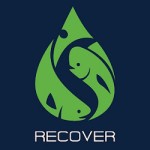
These short video clips depict the the diverse research methods that researchers use to examine how oil affects ecologically and economically important fish species. Broodstock Capture (1:34) This clip takes viewers aboard the University of Miami Rosenstiel School’s Yellowfin boat for a mahi mahi broodstock capture trip in the Florida Straits. All mahi mahi that Read More
These videos were developed to demonstrate research aboard the E/V Nautilus. ECOGIG in 60 Seconds Dr. Katy Croff Bell, Chief Scientist of the EV Nautilus crew, explains the mission of ECOGIG. Imaging Deep-Water Corals (Nautilus Live) As part of the ECOGIG project, the E/V Nautilus made its way to the site of the 2010 BP Read More

A journey reveals that her voice matters. A trip changes his work motivation. The theme of disaster response frames both of these touching and inspiring science stories. Members of the Gulf of Mexico Research Initiative community, Samantha (Mandy) Joye and Simeon Pesch, joined scientists Jessica Moreman, Laura Guertin, and Paula Buchanan and shared their personal Read More
This three-part video series features the new and innovative satellite tagging research that scientists are conducting on captive mahi-mahi to research how the larger pop-up satellite archival tags (PSATs) affect mahi-mahi swim performance and behavior. Wildlife Computers, who developed the PSAT tags, designed a scaled-down, non-data collecting “mini” tag specifically for the Relationships of Effects Read More

The Loop podcast takes a deep dive into the Gulf of Mexico with the researchers studying the processes, mechanisms, and impacts of oil spills. Researchers from the Center for Integrated Modeling and Analysis of Gulf Ecosystems (C-IMAGE) discuss their studies with David Levin of Mind Open Media. C-IMAGE is an international research group studying mud, Read More
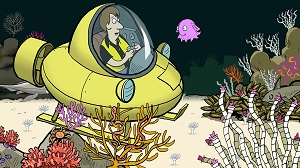
The Adventures of Zack and Molly is a four-part animated short video series that tells the story of a young man, Zack, who is more interested in the small world of his smartphone than the larger world around him. Zack’s online request for a roommate is answered by Molly, a tech-savvy Dumbo Octopus on a Read More
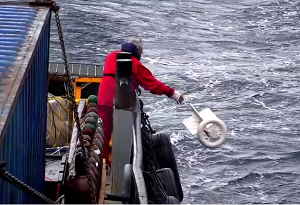
“Drifting in the Gulf” is an entertaining, educational video about the process of designing new scientific equipment for studying ocean surface currents. Co-created by Consortium for Advanced Research on Transport of Hydrocarbon in the Environment (CARTHE) and Waterlust, the video features the CARTHE drifter designed by University of Miami scientists, who spent two years testing Read More

Jewels of the Gulf is a 16-minute documentary highlighting research into Deepwater Horizon’s continued impacts on deep-sea corals. Background: On April 20th 2010, approximately 50 miles from the Louisiana coastline, the Deepwater Horizon oil rig experienced a catastrophic failure that resulted in the largest marine oil spill in history. Over the course of 87 days, Read More
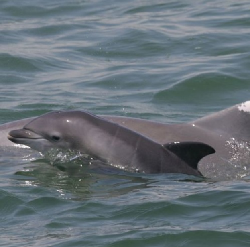
Dr. Kait Frasier recently appeared on the show to discuss how she uses marine mammal sounds to determine which species were present during the Deepwater Horizon spill and how they are functioning in their habitat present-day. Episode Summary (via Dispatches from the Gulf on Soundcloud): “Dr. Kait Frasier (Scripps Institution of Oceanography) is a pioneer in bioacoustics. Read More
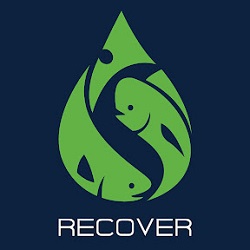
The video was created by former Relationships of Effects of Cardiac Outcomes in fish for Validation of Ecological Risk (RECOVER) consortium outreach coordinator Dan DiNicola and highlights the consortium’s efforts to capture spawning, feeding, and migratory behaviors in wild mahi using PSAT tags. The consortia commented: “As a last project Dan created and produced the Read More
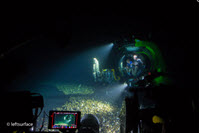
“Magical discovery moments” is how Dr. Samantha “Mandy” Joye describes scenes at the bottom of the ocean. Now, thanks to the BBC-produced documentary series Blue Planet II, we can get a glimpse of these discovery moments and join discussions about the ocean’s importance. The series, narrated by David Attenborough, includes seven episodes about exploring the Read More

The webinar, titled “The Benefits and Challenges of Interdisciplinary Research,” features Drs. Rajeev Ramchand and Michael Blum as they discuss their experiences collaborating with researchers from other disciplines. Learn more here!
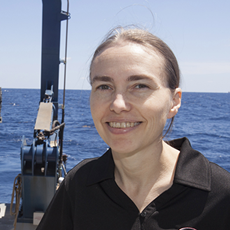
Dr. Mandy Joye recently appeared on the show to discuss her research on the ocean’s microbial “worker bees,” which carry out critical processes that keep the ocean healthy, and their reaction to the Deepwater Horizon oil spill. https://soundcloud.com/gulfdispatches/gulfcast-ep-6-joye-microbial-bees
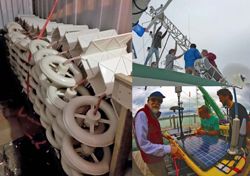
Scientists completed four field experiments in the Gulf of Mexico, linking the dynamics of deep ocean, shelf, and coastal surface currents (where materials such as oil or debris naturally accumulate) in a way that has never been done before. So how did they do that? The team representing 30 universities used 2,000 custom-made, biodegradable, GPS-equipped Read More

Graduate students Jacqueline Fiore and Vanessa Parks recently discussed their graduate school experiences and working on a transdisciplinary research team in a recent webinar for the Student Spotlight Series. Watch the webinar here.

This video highlights the tools and techniques that modern researchers use to study ocean currents and develop more accurate ocean circulation models. Watch the video here.

The clip invites viewers to tour the research vessel alongside Board of Regents members and learn about the research that scientists conduct during cruises. Watch the tour!

Dr. Brian Dzwonkowski released drifters at the mouth of Mobile Bay. Graduate student Jeff Coogan animated the drifters’ path, which captured a low-wind, high-discharge event. You can watch the video here. CONCORDE Oceanography Research Page CONCORDE Website

The Gulf of Mexico Research Initiative is pleased to announce the release of the Screenscope film production company’s trailer for “Dispatches from the Gulf-2.” This second film continues the remarkable stories about the global scientific team studying the Deepwater Horizon oil spill. The movie, narrated by Matt Damon, will air later this year as a Read More

A recent blog post describes how consortium scientists Giovanna McClenachan and R. Eugene Turner used GoPro® cameras to photograph a study site at two-hour intervals during four- to six-week periods between August 2014 and September 2015. Read about their findings here and check out the resulting time-lapse video!

Nova Southeastern University researcher Alexander Soloviev and his team generated a short clip in infrared imagery demonstrating how crude and weathered oil slicks respond to dispersant application. Read the post here! Watch the video!
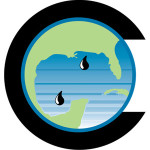
Researchers studied fish and seafloor sediments across the southern, western and northern Gulf of Mexico. Their goals were to understand the lasting impacts of oil spills and to develop baseline levels in Gulf waters. This aerial footage shows a sample of the work our researchers perform while aboard the R/V Weatherbird II. These studies include Read More
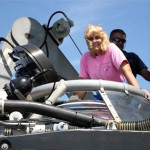
Dr. Frank works with the consortium’s crustacean team studying creatures such as crabs, lobsters, shrimp, and krill. She speaks about her research and shares why getting a job as an aspiring female scientist was very challenging. https://soundcloud.com/gulfdispatches/gulfcast-ep-4-dr-tamara-frank-i-was-told-i-should-be-a-florist
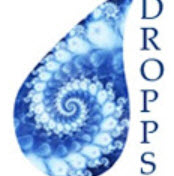
In April 20, 2010, the Gulf of Mexico had its greatest mishap in record time with the Deepwater Horizon oil spill, wherein an estimated 1,000 barrels of oil (peaking at more 60,000 barrels) per day were released into the Gulf for 87 days, for a total of 3.19 million barrels for the entire duration. The Read More

It happened on April 20, 2010 – 41 miles off the coast of Louisiana. The Deepwater Horizon oil-drilling rig exploded. Tragically – the blowout killed 11 – and changed the lives of millions living near the Gulf coast – as well as hundreds of scientists who responded to the crisis. To discover what happened – Read More
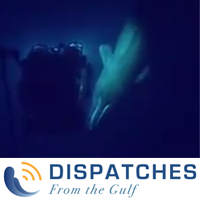
Professor Scott Socolofsky at Texas A&M University witnesses an unexpected visitor of the cetacean kind while conducting deep-sea research in the Gulf of Mexico. The creators of award-winning environmental series Journey to Planet Earth (hosted by Matt Damon) present Dispatches from the Gulf – an upcoming documentary film and educational outreach initiative highlighting exclusive Read More
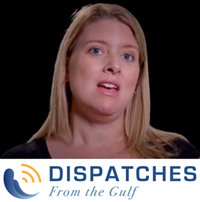
Tracie Sempier, Ph.D (Mississippi-Alabama Sea Grant Consortium) is a coastal storms outreach coordinator. She describes how after the Deepwater Horizon Event her work shifted from helping people prepare for and recover from natural disasters – like hurricanes – to helping people recover from man-made, technological disasters – like oil spills. The creators of award-winning environmental Read More
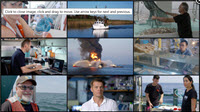
Screenscope, Inc., is pleased to announce the release of 50 short videos complementing the Dispatches from the Gulf documentary film. The videos include highlights from the film, interviews with Gulf of Mexico Research Initiative (GoMRI)-funded scientists and graduate students, and more. An associated Educators Guide provides detailed descriptions and keywords for each video. The videos Read More

A team of researchers from the University of South Florida uses a multi-corer to obtain deep sediment cores from the Gulf of Mexico. Back in the lab, they analyze the layers of sediment and build a history of the Gulf, with Deepwater Horizon being the latest chapter. Featuring oceanographers David Hollander, Isabel Romero, and Patrick Read More

The Gulf of Mexico’s coastal wetlands and marshes are home to thousands of species of plants and animals – and its beaches help support a hundred billion-dollar tourist industry. It’s also a place whose waters provide 40% of the commercial seafood caught in the lower 48 States. After 87 days of oil spewing into the Read More

Coupling the “crime scene” forensic idea with the idiom of geology creates the following premise: “the present is the key to the past, but the past provides a window into the future.” Researchers are using chemical forensics to predict how the Deepwater Horizon Event will transpire over the decades to come. Featuring David Hollander (University Read More

Will Patterson at Dauphin Island Sea Lab studies reef fish communities and the dramatic effect the non-native lionfish are having on native fish populations. The creators of award-winning environmental series Journey to Planet Earth (hosted by Matt Damon) present Dispatches from the Gulf – an upcoming documentary film and educational outreach initiative highlighting exclusive scientific Read More

Fisherfolk share their feelings about working and living along the Gulf of Mexico. The creators of award-winning environmental series Journey to Planet Earth (hosted by Matt Damon) present Dispatches from the Gulf – an upcoming documentary film and educational outreach initiative highlighting exclusive scientific discoveries in health, ecosystems, innovation and recovery in the post-oil spill Read More

Professor Nancy Rabalais (LUMCON) and her team focus their research on the effects of the Deepwater Horizon Oil Spill on coastal ecosystems – particularly the Louisiana wetlands and marshes. The creators of award-winning environmental series Journey to Planet Earth (hosted by Matt Damon) present Dispatches from the Gulf – an upcoming documentary film and educational Read More

Louisiana waterman David Chauvin describes how the shrimping community in the Gulf is used to dealing with and recovering from natural disasters like hurricanes, but the man-made disaster that was Deepwater Horizon has left them unsure of how to move forward. The unknown duration and depth of the oil spill’s impact has instilled fear among Read More

The R/V Weatherbird embarks on a two-week research cruise in the Gulf of Mexico. Its mission is to collect and analyze fish and soil samples near the site of the Deepwater Horizon oil spill. Dave Hollander and Steve Murawski from the University of South Florida lead the team of oceanographers. The research is divided into Read More

The creators of award-winning environmental series Journey to Planet Earth (hosted by Matt Damon) present Dispatches from the Gulf – an upcoming documentary film and educational outreach initiative highlighting exclusive scientific discoveries in health, ecosystems, innovation and recovery in the post-oil spill Gulf of Mexico. Published on Jun 22, 2016 Six years after the Deepwater Read More
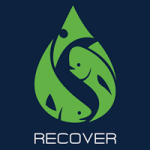
The video briefly describes how oil exposure can affect a fish’s heart, senses, and swimming ability and what that could mean for its survival. Visit RECOVER’s Social Media pages!
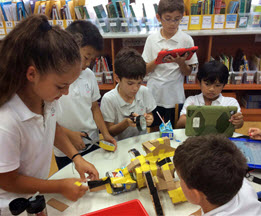
Communicating oil spill research is essential to improve society’s understanding about spills and their ability to respond to and mitigate them. The Gulf of Mexico Research Initiative (GoMRI) has been funding spill-related research since 2010. Here are ten outstanding education products and resources that GoMRI and its science community have developed to share what they Read More

The short clip tracks the paths of drifters released during a research event in the Mobile Bay area as part of the Consortium for oil spill exposure pathways in Coastal River-Dominated Ecosystems (CONCORDE)’s Spring Research Campaign. See below for video to learn more about the drifter deployment. This animation was created by Jeff Coogan who works Read More
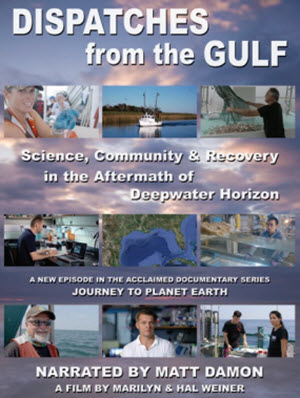
Screenscope, Inc. has completed production of three Dispatches from the Gulf documentary films, which features scientists working to better understand the effects of the Deepwater Horizon oil spill. Dispatches from the Gulf is part of the Journey to Planet Earth series and is narrated by Matt Damon. All three films and corresponding educational materials are Read More

The Deepwater Horizon oil spill initiated an unprecedented response effort and mobilized the largest, coordinated scientific research endeavor around an ocean-related event in history; the Gulf of Mexico Research Initiative (GoMRI). The Screenscope film production company is developing “Dispatches from the Gulf” to help tell the story about the scientists involved and their research to Read More
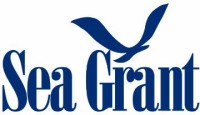
Click to view Information on Sea Grant Oil Spill Seminars in April 2016 These seminars will be streaming live so you can participate remotely. April 6 in Austin, TX: Chilling with your chums: How did the oil spill impact Gulf fisheries? Register here. More info here. April 14 in Mobile, AL: Where did the oil go? Register here. More info here.
The short video depicts a small crustacean called an amphipod, which uses large claws to not only eat its prey but also use their resources to build a gelatinous home around itself. You can watch the video and read a bit more about amphipods. Deep sea amphipod! Here we have a video of a deep Read More

Dr. Jeff Chanton recently appeared on Minnesota Public Radio’s Climate Cast podcast to talk about the ongoing Aliso Canyon methane gas leak and why methane is so destructive. You can listen to the full interview here under the heading “Climate Cast; Methane leak causes state of emergency in California.” Link to ECOGIG’s website for more information.
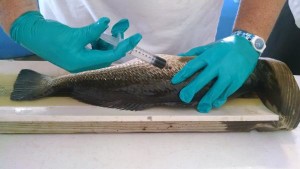
WUSF’s Steve Newborn talks with two scientists who are involved in the study, Dana Wetzel of Mote Marine Laboratory in Sarasota and Ben Prueitt of the Center for the Integrated Modeling and Analysis of the Gulf Ecosystem (C-IMAGE) research consortium. The study could have lasting impacts on our knowledge of how oil and dispersants used during the Read More
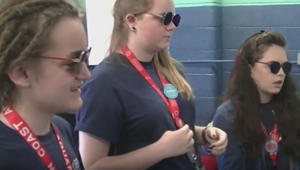
This video clip by Oceanscape Network depicts how water can affect the color of light and how deep sea animals use this for camouflage. Students created underwater creatures out of colored paper and determine which colors offer the best camouflage. Credits: DEEPEND

This kid-friendly slideshow uses photos and helpful captions to explain researchers’ routines aboard the ship and how they operate various equipment to collect and analyze samples. For more videos like DEEPEND Slideshow Depicts Life Aboard a Research Vessel, click here.

A pod of dolphins (and a few sharks!) visited the R/V Endeavor during a research cruise in the Gulf of Mexico; they spent several hours hanging around the ship. Some of the researchers on board put a GoPro camera in the water to capture these beautiful animals swimming near the ship. Video processing by Emma Read More
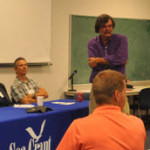
A seminar series by Sea Grant in the Gulf of Mexico (Navigating Shifting Sands: Oil on our Beaches) was held on August 5, 2015, in Pensacola, FL. Scientists shared their work to answer lingering questions about oil that washed up on Alabama and Florida beaches during the Deepwater Horizon oil spill. More than 85 participants Read More

Click here to watch the conference presentations about research that helps answer “what have we learned, what does it mean, and how can it be used?” This year’s event was especially significant as the Principal Investigators of eight GoMRI consortia presented highlights during the opening plenary from their groups’ three-year research efforts. During a conference Read More

A fourth grade class at Singapore American School found Bob the Drifter and the CARTHE science group while researching ocean science and pollution online. CARTHE’s drifter experiments, GLAD and SCOPE, are helping scientists understand how ocean surface currents move pollutants such as oil. CARTHE’s visually-engaging experiments and their animated, data-gathering mascot “Bob” motivated these young students Read More
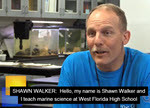
What could be better than having class on the beach and conducting actual research to boot? See how Shawn Walker, a marine science teacher at West Florida High School, transforms his students into scientists. A CPALMS perspective Video.
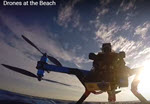
The Gulf of Mexico Research Initiative congratulates the CARTHE research team for their first place award-winning video that teaches Drone Technology for Oil Spill Research. Over 37,000 middle school students across twenty-one countries selected the winning ocean science research videos after a two-month evaluation of the top entries that best explained scientific results and significance. Read More
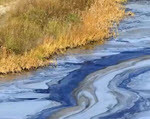
Chris Reddy, an oil scientist at Woods Hole Oceanographic Institution and research for DEEP-C, explains how crude oil is formed and how it behaves in the environment. A CPALMS perspective Video by Chris Reddy.
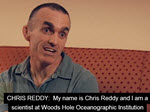
Humans aren’t the only ones who get their fingerprints taken. Learn how this scientist is like a crime scene investigator using oil fingerprints to explain the origins of spilled oil. A CPALMS perspective Video by Chris Reddy.
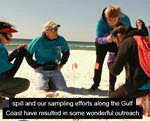
Learn how scientists are studying what happens to spilled oil and over time how it affects the environment. A CPALMS perspective video by Catherine Carmichael.
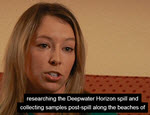
Watch how these high school students work alongside Woods Hole Oceanographic Institution experts conducting oil spill science. A C-PALMS perspective Video by Catherine Carmichael.
The Coastal Waters Consortium (CWC) came together in early 2012 to assess the chemical evolution, biological degradation, and environmental stresses of petroleum and dispersant within Gulf of Mexico coastal and shelf ecosystems. CWC research and education and outreach programs are funded for 3 years by the Gulf of Mexico Research Initiative. The Gulf of Mexico Read More
The purpose of this site is to inform the public of current scientific research and education activities being conducted by the Coastal Waters Consortium which is funded through the Gulf of Mexico Research Initiative.
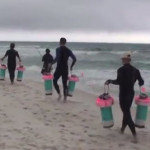
Scientists from the University of Miami have been visiting our area for the last three weeks studying the movements of ocean currents along the coast in order to observe how they carry oil, fish larvae or toxins in the water. On this particular day, 7th grade science students from Episcopal Day School in Pensacola were Read More
Researchers studying the movement of ocean flows use a variety of tools and technologies to collect accurate data. Drifters are tools that report their location, speed, and in some cases water conditions as they are carried by ocean currents. The data collects by drifters can help improve models that predict the movement of objects or Read More
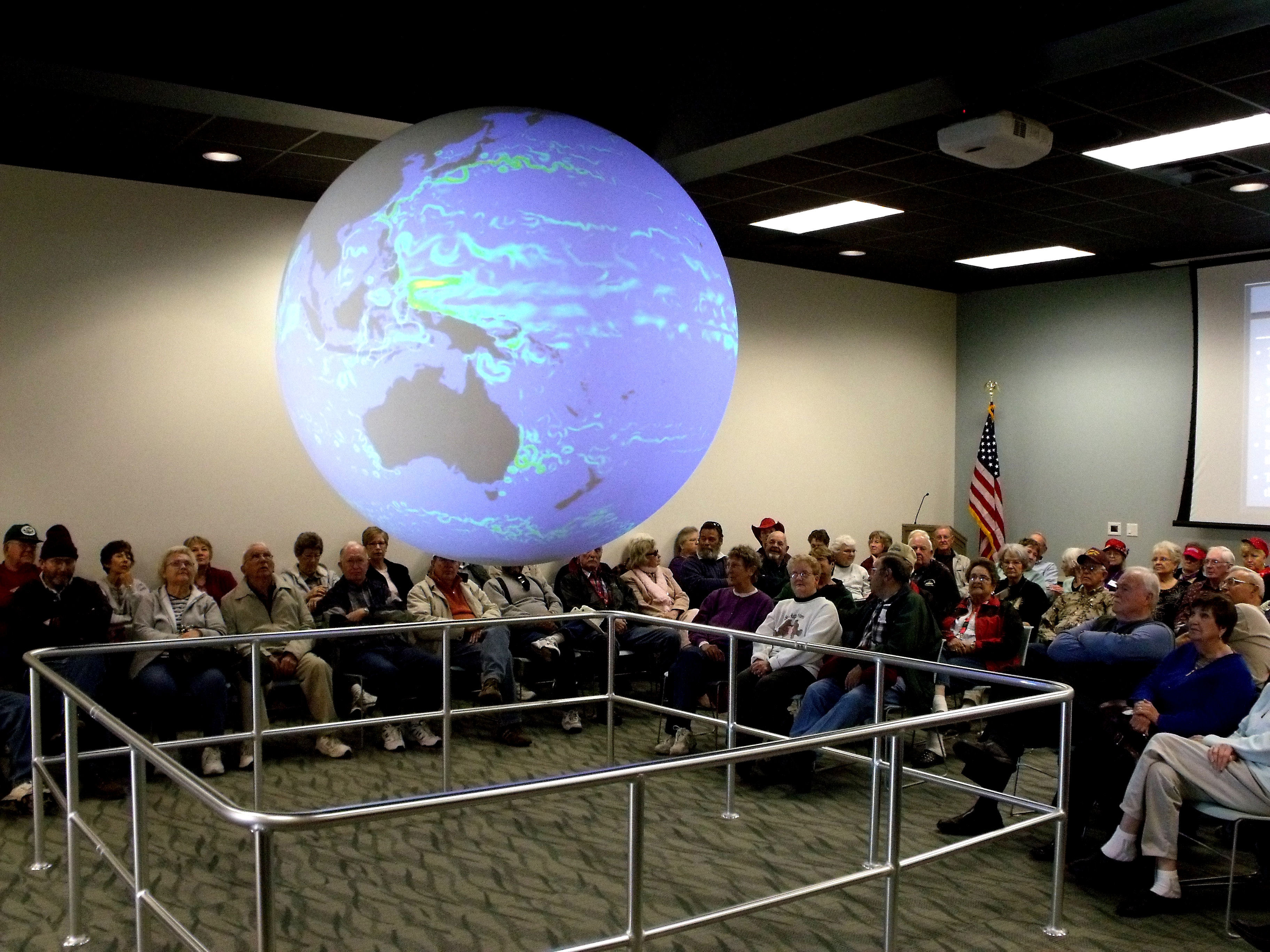
All the world’s a stage – literally – as oceanic, atmospheric, and geologic conditions and events come to life on a “revolving” globe. General public visitors attend a Science on a Sphere presentation at the Bay Education Center. (Photo by Jackie Hattenbach) Researchers and science educators are using visualizations of oil spills, tsunamis, and hurricanes Read More

